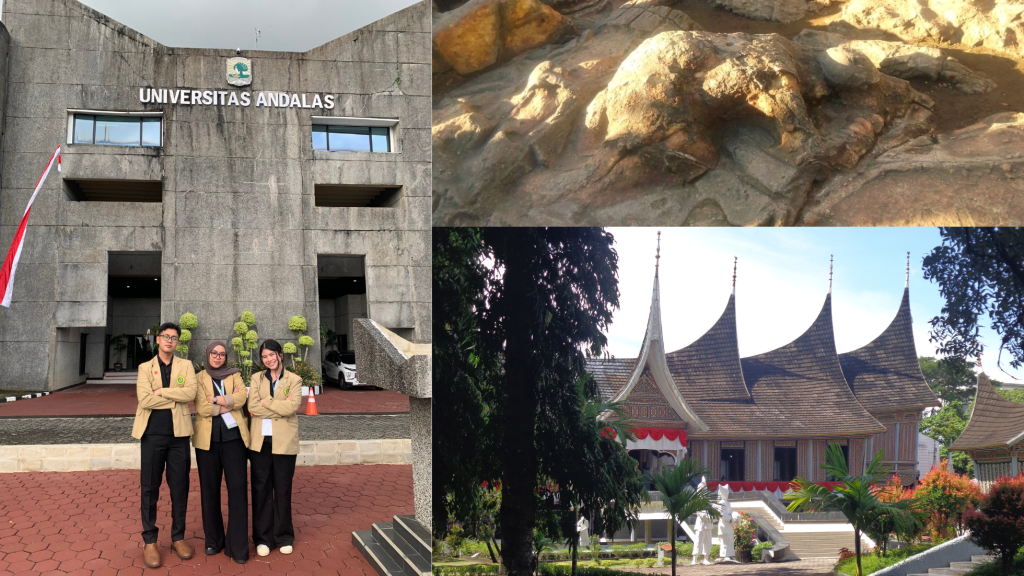This year, the Nationwide University Network in Indonesia (NUNI) Presidential Forum, Annual Meeting, and Student Camp 2025 was held at Universitas Andalas, Padang, from August 30th to September 1st 2025, With the theme “Innovation in Food and Agriculture, Health and Medicine, Advanced Material and AI, and Disaster Risk Mitigation to Expedite Sustainable Development Goals (SDGs),” the event brought together university leaders, academics, and students from across the country to advance collaboration in achieving the SDGs.
The Presidential Forum and Annual Meeting facilitated dialogue among rectors and NUNI administrators, while the Student Camp engaged young leaders as active contributors in generating innovative solutions to national and global challenges. This event was also attended by the Vice Rector for Cooperation, Alumni, Innovation, and Business, Ir. Catharina Badra Nawangpalupi, Ph.D.
The Student Camp, in particular, provided opportunities for students to explore pressing issues such as food security, equitable healthcare, sustainable materials, artificial intelligence, and disaster risk management. Through thematic sessions and collaborative discussions, participants were encouraged to exchange knowledge and propose concrete innovations aligned with the SDGs. From UNPAR, there were three student representatives who attended the event; Hafizha Nurul Azka (International Relations ’22), Roybafihi Adam Muharram (International Relations ’23), and Theresia Sanvia Santoso (Business Administration ’24).
The Student Camp began with a series of academic presentations that introduced participants to the five central themes of the program. Experts delivered sessions on Advanced Materials and AI, exploring the growing role of artificial intelligence in both software and hardware applications and its relevance in everyday human life. This was followed by a discussion on Food and Agriculture, which highlighted Indonesia’s heavy reliance on imported food products and the risks this poses to long-term food security. The session on Health and Medicine emphasized the urgency of addressing rising cancer rates, particularly breast cancer, through innovation and greater public education on preventive measures. Participants also learned about Renewable Energy and Advanced Materials, which outlined Indonesia’s potential for reducing emissions through clean energy initiatives, and finally, a presentation on Disaster Risk Management that focused on earthquake preparedness, resilient infrastructure, and mitigation strategies before and after disasters.

To strengthen the link between theory and practice, students were taken on site visits to observe real-world applications of the concepts discussed. At the Closed Farm, students learned how controlled-environment agriculture and precision farming contribute to food security and as an economic resource. The Teaching Factory showcased how universities and industries collaborate to apply academic innovations directly to production processes. And the visit to Universitas Andalas Hospital highlighted innovations in healthcare. Beyond academic sites, participants also visited Semen Padang, where they observed the industry’s transition toward sustainable practices, and engaged in cultural tours to Malin Kundang site.
Together, these activities provided students with a holistic understanding of how innovation, culture, and collaboration are essential in achieving the SDGs. And the final day of the camp focused on collaborative group presentations. Students proposed innovative projects directly linked to specific SDGs. By combining academic knowledge, practical fieldwork, and cultural insights, the event not only strengthened the network among Indonesian universities but also empowered students to act as change agents in achieving the Sustainable Development Goals.
